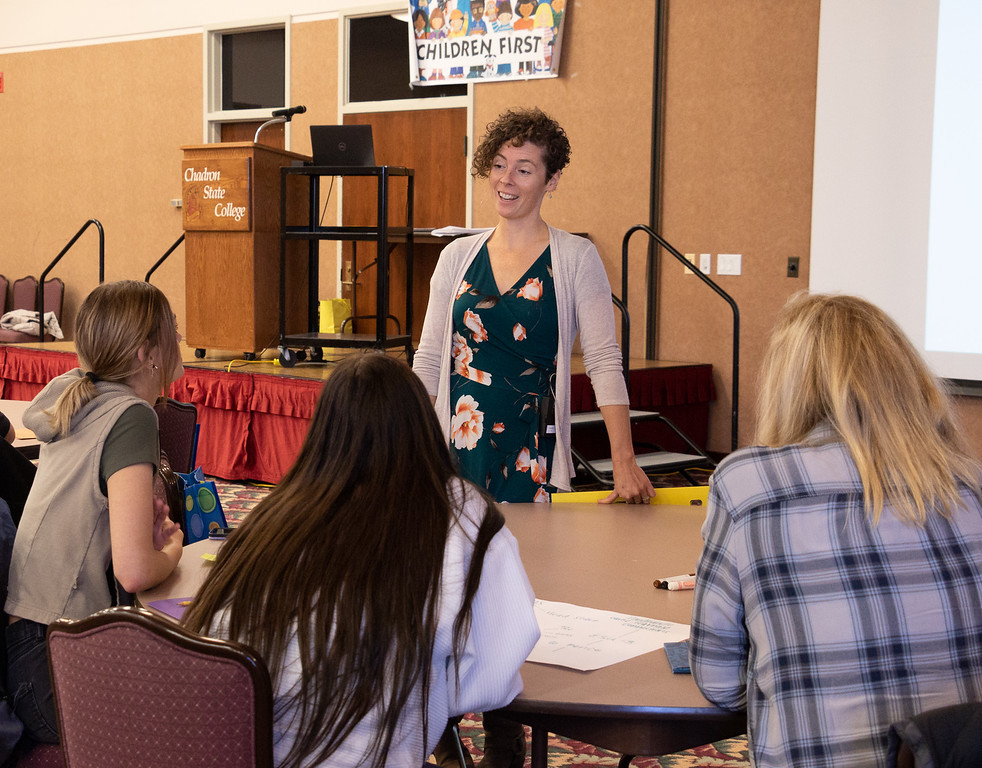Speaker offers care providers strategies for challenging behaviors

CHADRON – Lauren Stauble, Boston educator and author, spoke to about 60 attendees at the annual Excellence in Early Childhood Conference in the Chadron State College Student Center Feb.19. Stauble has co-authored a book, she hopes to have published later this year, about collaborative emotion processing.
“Challenging behaviors are children’s attempts to communicate a message,” Stauble said.
Since pre-school children may not yet have developed the language to say they are scared, hurt, or want to play with someone, Stauble has developed Emotion Processing Cards. By asking the children in her class how each image in the pack of cards makes them feel, she helps children identify and deal productively with difficult feelings.
“They will not just grow out of it. Teaching them a skill like empathy is just like teaching them to zip their jacket. We model it, we repeat it. They learn from experience and making mistakes. Don’t try to fix it or judge,” Stauble said.
Stauble explained the brain science behind techniques to deal with challenging behaviors called soothing and scaffolding.
“When the pre-frontal cortex is not engaged, they are not going to listen or learn. During a meltdown is not the moment to try to teach. Sooth first, then teach later,” she said. “If you have a child who hates putting on shoes but loves going outside, try to help them connect the two.”
She suggested pausing when the care provider and child are both upset.
“Say something like, ‘I’m going to take some deep breaths to calm down. Do you want to take some deep breaths with me?’ Notice your feelings. Be present. Pay attention. Demonstrate to the child how to move through it,” she said. “Calm adults feel safe to children. Angry adults do not feel safe to children.”
She emphasized that self-care, such as mindfulness, drinking water, and breathing exercises is necessary to sustain a career as a childcare provider.
“Stop, pay attention to what your body needs in the moment. Never underestimate a child’s desire to relax with you. Plan for spontaneity. My friend experienced a flat tire on the way to an activity. She had the tools to fix it. She modeled preparedness and reacted to an unexpected situation with calmness,” Stauble said.
—Tena L. Cook, Marketing Coordinator
Category: Campus News, Education
